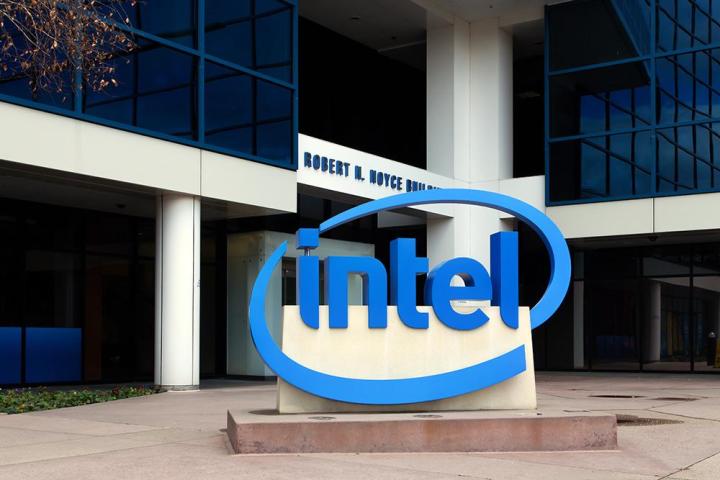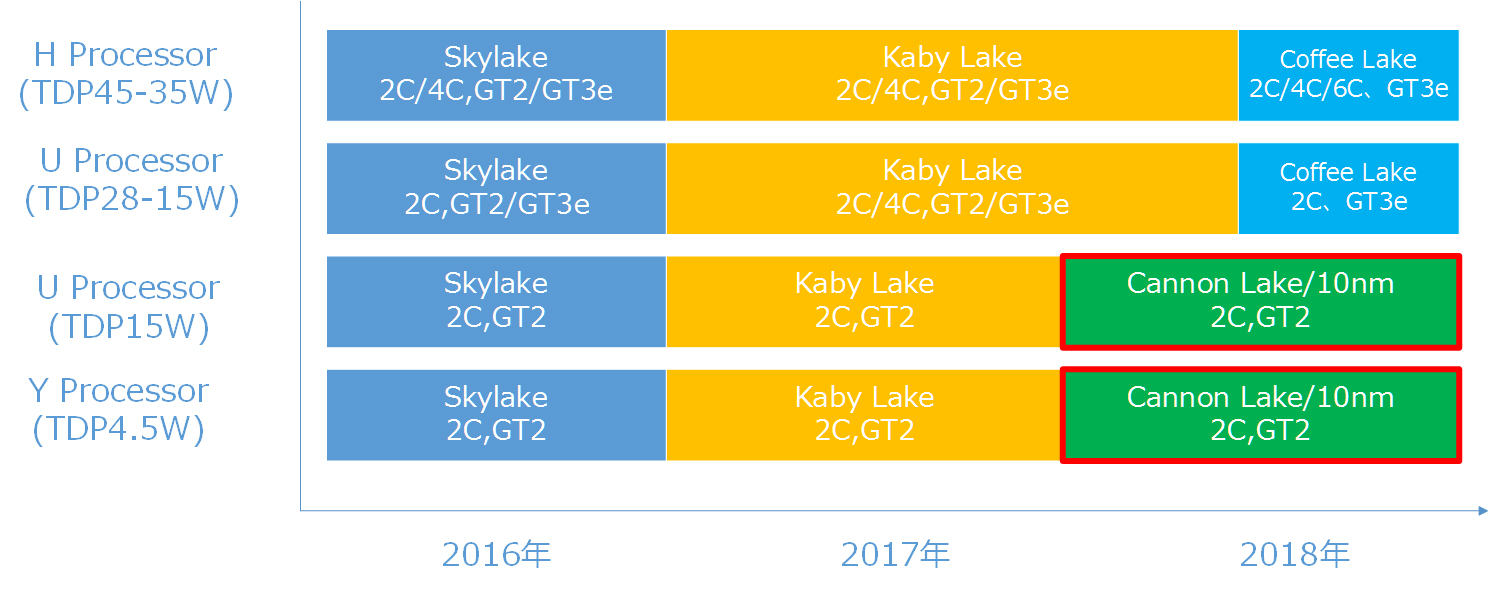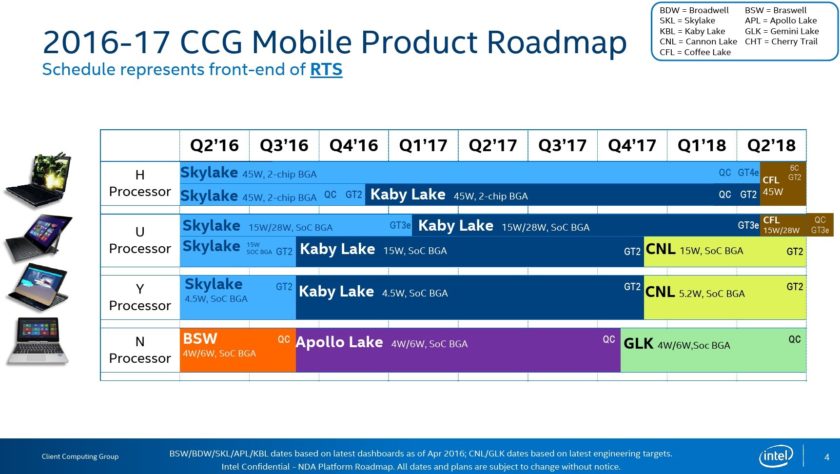
Intel’s latest generation of processors is codenamed as “Kaby Lake,” and they’re rolling out to the market now as the 7th-generation Core processor. Following Kaby Lake will be “Cannon Lake” along with “Coffee Lake,” the latter of which will offer a six-core chip along with two-core and four-core models.
According to the first leaked roadmap, Cannon Lake will be based on Intel’s first-generation 10-nanometer production technology. These processors will sport two cores and GT2 graphics, and will continue the company’s “U” and “Y” processor lines. The “U” models will have a power requirement of 15 watts whereas the “Y” models will only have a requirement of 4.5 watts. Cannon Lake won’t make an appearance until late next year, and will continue on into 2018.
As for Coffee Lake, the processors will target 2018 spanning “H” and “U” models. The “H” versions will draw between 35 to 45 watts of power whereas the “U” models will draw between 15 and 28 watts of power. Likewise, it’s the former “H” line that will sport the six-core variant along with four-core and two-core chips. The “U” models will only have two cores while all Coffee Lake chips will include Intel’s GT3e graphics.
In a second slide showing Intel’s notebook processor roadmap, the six-core Coffee Lake “H” processor with a 45-watt power envelope and GT2 graphics is slated to arrive sometime during the second quarter of 2018. This chip will be joined by four-core “U” processors with power envelopes of 15 watts and 28 watts, and GT3e graphics.
The roadmap leak indicates Intel might add six-core chips to its mobile line-up.
The six-core chip is potentially the most interesting. Up until now, Intel’s “H” line processors have typically been the “HQ” series of Core i5 and Core i7 mobile quad-core hardware. The roadmap leak indicates the possibility of Intel adding six-core chips to its mainstream mobile line-up for the first time.
That’s assuming Intel’s future branding is the same as its current, however. As Intel recently demonstrated with Core M, its strategy isn’t set in stone. Its possible the six-core chips will only be for Xeon mobile, or target small desktops and all-in-ones.
Before that, Intel plans to flood the notebook market with its Cannon Lake processors in Q4 2017. A 15-watt model with GT2 graphics will fill the “U” line while a 5.2-watt model with GT2 graphics will fall under the “Y” processor umbrella. These will essentially replace Kaby Lake.
Intel’s second slide also reveals the launch window of its “Gemini Lake” processor. Right now, we’re just now seeing the rollout of Intel’s “Apollo Lake” processors with four cores and power envelopes of four watts and six watts. These will continue to cover Intel’s “N” processor line until Q4 2017 when Gemini Lake makes its debut. Gemini Lake will also consist of quad-core processors with four watt and six watt power envelopes.
Keep in mind that everything mentioned here regarding Intel’s roadmap falls under “rumor” given that the company hasn’t officially laid out its roadmap for all to see. And as one of the slides points out, all dates and plans are subject to change without notice.
Editors' Recommendations
- It just became the perfect time to buy a last-gen Intel CPU
- Reviewers agree: Intel’s latest chip is truly ridiculous
- A major era in Intel chip technology may be coming to an end
- Intel 14th-gen Meteor Lake: architecture, specs, and performance
- Some surprising details on Intel’s upcoming 14th-gen laptops just leaked




